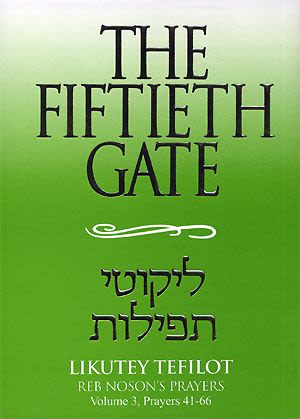
Chayei Sarah: Weeding the Soul
Why did Isaac make a special effort to go out to the field in order to commune with Hashem? What must we learn out in the field?

“And Isaac went out to converse in the field…”(Genesis 24:63).
Every single movement of our holy forefathers was motivated by the purest intent to serve Hashem. With this in mind, why did Isaac make a special effort to go out to the field in order to commune with Hashem?
If I’m not mistaken, the notion of “field” is an allusion to the service of Hashem. The Gemara cites a case about a field that has strong undertones alluding to one’s obligation to refine his or her character. The Gemara states[1]: “One who rents a field from his neighbor and refuses to weed the field, saying, “What do you care as long as I’m paying the rent” – one need not listen to him, for the owner of the field can say, “tomorrow you leave the field and it yields for me weeds.”
The simple interpretation of the above passage is that a person has rented a field for whatever reason but he’s too lazy to weed the field and properly maintain it. The owner of the field therefore has a bitter grievance. The renter asks the owner, “Why are you so upset? I’m paying the rent, so I can do whatever I want with the field.”
The owner replies, “Oh, no you can’t! You must pay me damages. The field was capable of yielding thick,  luscious stalks of wheat. But now that it’s full of weeds, it will only yield scrawny thin stalks. The potential yield will be much less.”
luscious stalks of wheat. But now that it’s full of weeds, it will only yield scrawny thin stalks. The potential yield will be much less.”
The renter answers, “No problem! I’ll by you the best grade of wheat on the market and reimburse you for your field’s loss of potential.”
Disagreeing, the owner says, “I don’t want the wheat from the market; I want the wheat from my own field!
The renter then says, “OK, I’ll cultivate and weed a portion of the field to repay you the damages. The owner doesn’t agree to that either, for he claims that the renter has given a bad reputation to his field.
What’s the bad reputation that the owner is speaking about? Rashi explains[2] that the neighbors, who know that the owner of the field is diligent and undoubtedly weeds and cultivates the field, will see that the field nevertheless is full of weeds. The field will therefore receive a bad reputation that will sorely decrease it’s value if the owner ever desires to rent it again or to sell it.
The renter thinks that he’s fulfilling his obligation by merely paying the rent. He doesn’t take into account the long-term damage that his negligence causes. The unweeded weeds will grow to maturity, then cast their seeds all over the field. After every rain, new weeds will spring up, harming and reducing the yield of the desired crop in addition to weakening the field. Therefore, “one need not listen to him” as the Gemara says. Religious law states emphatically[3] that the renter is not allowed to neglect proper maintenance of the field because of the long-term damage that the negligence will cause.
If I’m not mistaken, the above sugiya[4] alludes to a person who fails to fulfill his obligation to refine and rectify his character. The owner if the field is symbolic of the Almighty. The field symbolizes the soul, which is given temporarily to the renter, which symbolizes the body. The weeds in the field allude to bad character traits. By “proper cultivation”, Torah and Jewish ethics learning, one ‘weeds the field” and refines character. The lazy “renter”, especially a person with a religious appearance who fails to learn Torah and emuna while doing his best to internalize and live by them, ends up giving a bad name not only to “Hashem’s field”, but his uncultivated character and bad traits will give a bad name to the entire community, Heaven forbid. As such, we all must get to work for there’s no room for laziness in Judaism.
We now know what Isaac was doing in the field. Not only was he praying his afternoon prayers, but he was devoting significant time to begging Hashem in personal prayer to help him purify himself. That’s what made him Isaac, our holy forefather. We should all follow in his footsteps.









